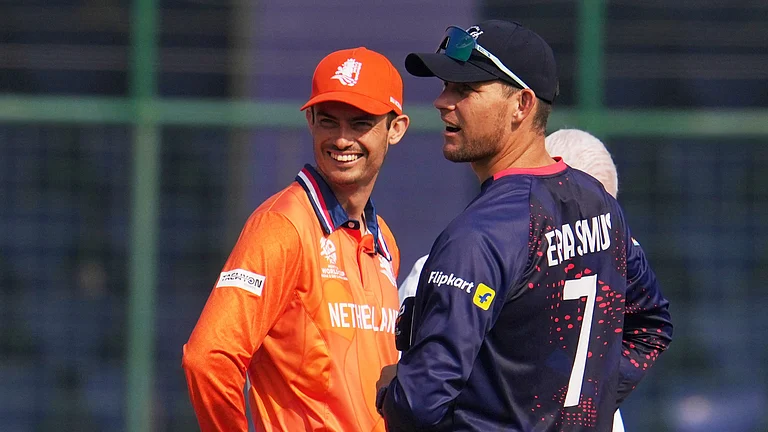More Than 2 Months Of Horror
The life of the girl from Madhyamgram could have been saved if the police and administration had acted on her complaint promptly
- October 25, 2013
The 16-year-old school girl abducted, gangraped and abandoned in an unconscious state in a field. Police shows no interest in finding her. - October 26, 2013
The girl is found in the field, regains consciousness and accompanies her father to the police station to lodge a complaint. No protection given. - October 26, 2013
While returning from the police station, the girl is abducted again by the same people, gangraped and left by the side of a railway track. - November, 2013
The family flees village and shifts to Dumdum after finding the police taking no interest or action and the culprits moving about freely - December 23, 2013
Gang catches up with the family and threatens it with dire consequences if complaint is not withdrawn. Not clear if she was molested again. - December 23, 2013
While the father was out driving his taxi and mother fetching water, the girl is set on fire. Police try to pass it off as a suicide bid. - December 31, 2013
The girl succumbs to burns. Police tries to cremate body without doing a post-mortem. She was found to be two months pregnant. - January 7, 2014
The father calls on President Pranab Mukherjee and demands a CBI inquiry. He also calls on the National Commission for Women.
***
“It’s so frightening you want to flee the state,” says a schoolgirl from Kamduni, in the North 24 Parganas district, now infamous for the gangrape-murders of two young women. Her words should be haunting West Bengal chief minister Mamata Banerjee, whose administration and police have handled cases of sexual assaults on women casually and callously—right from the Park Street gangrape case of 2012. Despite her image as a crusading woman, Mamata hasn’t come out shining either, obsessed as she was in imputing political motives to the sexual assaults and protests than in finding the culprits.
The terror of the North 24 Parganas district—now spreading among women across the state—stems from two cases. In June last year, a college student from Kamduni had been dragged off the street in broad daylight, gangraped and murdered. Her body was found dumped in a ditch. What seems to have shaken schoolgirls in the area more is the recent case from nearby Madhyamgram, in the same district—more horrifying perhaps, if gangrapes and murders could ever be thought of in degrees of brutality.
The ordeal of the second victim, the 16-year-old daughter of a taxi-driver, lasted around two months—from October 25 to December 31—during which she was gangraped twice and at last died of burns in a Calcutta hospital. It’s a harrowing story, one that is only now evoking nationwide outrage, not only over the sexual violence, but also over the inability of the police and the state government to protect the victim and her family from their tormentors.
It was in October last year that a group of young lumpens abducted and gangraped the teenager. They left her half-unconscious in a field, where she was later found by her father. The very next day, as she was returning with her father after lodging a complaint at the police station, she was abducted again by the same men. Her helpless father could not prevent the abduction. The brutes gangraped her again and left her to die on a railway track. She survived. But the terrorised family left the village and took up residence in Dum Dum, near Calcutta airport. The case created but a few ripples in the media. There was hardly a flutter of protest from the political parties or civil society.
In December, the gang members allegedly reappeared in Calcutta and threatened the girl’s family with dire consequences if the case wasn’t withdrawn. What happened thereafter is not clear even now, but the girl was found with 60 per cent burns and, after eight days of treatment, died in hospital on December 31. In her dying declaration, she said she’d been set on fire.
Protests broke out in Calcutta and across the state. Six men have been arrested. But the role of the police in the whole affair has been shameful. Some policemen tried to have the body cremated without a post-mortem, but were thwarted by women’s groups, rights groups and the principal opposition party, the CPI(M). With this attempted hustle, the police was only adding to their long list of lapses—failing to protect the victim since her October complaint, failing to conduct forensic tests and medical examinations. Some policemen suggested the victim’s father should either stop driving his taxi or return to his native Bihar; they even objected to the Bihar government rushing a representative with a cheque for Rs 1 lakh for him.

Upstaged by the CPI(M) and neighbouring Bihar because of her officials’ delay in rushing to the victim’s aid, Mamata pursed her lips and declared that her detractors were orchestrating a campaign to malign her and the government. No one was surprised: after all, Mamata had described the Park Street case as “concocted by the opposition”, before it was cracked. Of the Madhyamgram case, she said, “If you work well, you’ll be pulled back and conspiracies will be hatched to stop you. Those who did nothing in the past 35 years are now busy doing this.”
While the opposition has indeed tried to capitalise on a tragedy, the state government has come out far worse. As for the media and rights activists, the attention they drew to the double gangrape in October was inadequate to move the administration: even the National Commission of Women took note only after the victim’s death, when the father arrived in Delhi with some CPI(M) leaders to take his complaint to President Pranab Mukherjee. “It’s as though the girl died right under the nose of the administration and police,” says Kaushik Sen, a veteran actor and social activist. “The victim seems to have been penalised for having approached the police.”
West Bengal, despite its education levels and political awareness, is no safe haven for women. Rapes and gangrapes were committed during the Left Front rule as well. Then chief minister Jyoti Basu had shrugged off the gruesome 1990 rape of three middle-aged women, one of them from the unicef, in Bantala. “It’s time political parties handled such situations responsibly and learnt to rise above partisan politics,” says Tarun Ganguly, a commentator.
For now, the street protests in the Madhyamgram case seem to be receding, much to Mamata’s relief. But she’s been left holding a report card that’s badly sullied (see graphic above). She would be particularly ruing the botch-ups and insensitivity in the Madhyamgram case, for of late she appeared to be winning over at least some of her critics. By moving the secretariat uncharacteristically without fuss to Howrah—across the river from Writers’ Building, which was to be renovated—she had won quite a few admirers. People had also grudgingly begun to admit that the state’s tax revenues seemed to be going up. And the chief minister’s penchant for cultural extravaganzas, once widely criticised, had begun to create feel-good vibes. She also tried to ring in the new year with a cabinet reshuffle that saw her easing out her trusted aide Partha Chatterjee from the industry and commerce portfolio for non-performance. Industry—which suffered mostly due to the state government’s policy of non-intervention in land acquisitions—was handed over to finance minister Amit Mitra, a former FICCI boss. She has described Mitra as the “most business friendly face of Bengal” and praised him for bringing in revenues. She also tried to highlight her “achievements” by talking about the new legislations framed by her government, such as the Singur Land Act.
But for every success story she cites, counter-arguments from critics have managed to keep her grades low. It has been pointed out, for instance, that the Singur Act failed to achieve its goal of handing acquired land back to farmers after the law itself got stuck in a series of litigations. Claims of revenue generation too have been scoffed at by the opposition as having come from taxes levied on alcohol and tobacco rather than any real growth or improved collection methods. The promise of an industry-friendly state, they say, is a chimera, given the prevalent land acquisition policy. Even her record with the minorities is being criticised: among those facing the most flak is the Rs 2,500 monthly honorarium to imams, being seen as an attempt to appease the community rather than help it solve its problems in the long term.
If there’s one area, however, where her government has earned plaudits, it is for adopting a strict stand against bandhs and strikes. Violence and rioting associated with bandhs and strikes have gone down substantially in the state. But that is small consolation for a woman chief minister who is being blamed for not cracking down on perpetrators of sexual violence—notwithstanding her successful campaign in forcing the resignation of Justice A.K. Ganguly from the West Bengal Human Rights Commission. The judge has been accused by an intern of sexual harassment.


























